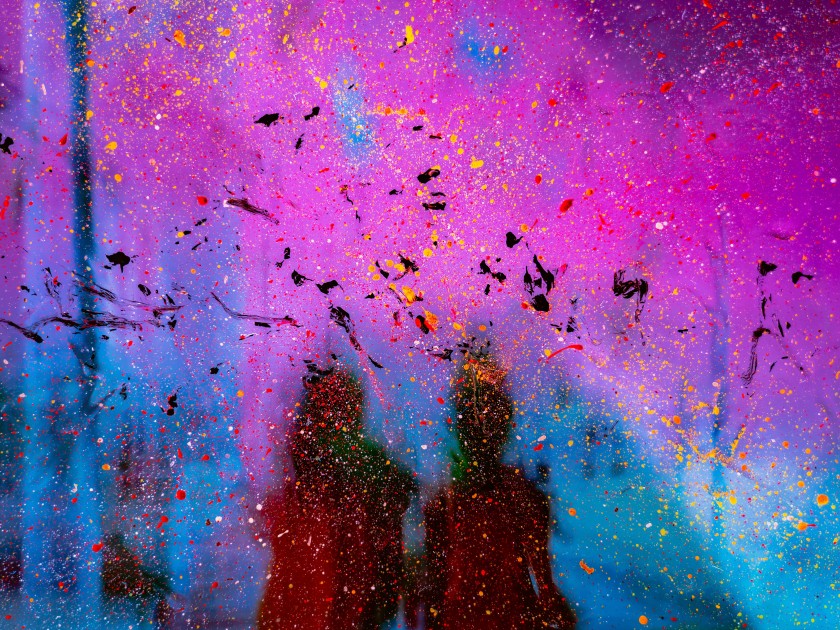You can’t be a Jew alone. I’m not sure where this familiar saying came from, or when. I have to assume it emerged naturally out of the experience of Judaism, which, from the ancient Israelite form of the religion to the present, has always involved coming together in collective pursuit of the sacred and meaningful. Whether we meet the need in person or via Zoom, the fact is that we need each other.
Judaism has always recognized this fact. In Ecclesiastes, we read “Two are better off than one…For should they fall, one can raise the other” (4:9 – 10). Perhaps for this reason, certain prayers require the presence of ten people (a minyan); others, like the Barchu and the Sh’ma, have us actively calling out to one another. We also accept collective responsibility — for example, when we recite our wrongdoings on Yom Kippur, we do it in the plural.
The same need turns out to be true of poetry, and perhaps especially Jewish poetry. At first this might not seem self-evident — after all, typically a writer writes a poem alone, maybe even shut up in a room with the door closed. But what happens after the poem is written? As the poet Stanley Kunitz once said, “The poem is on its way in search of people. For its complete fulfillment it has to find an audience, it has to be invited into some other person’s mind and heart.”
Poets themselves need these invitations, too. So where can we find them?
- Publishing/reading poetry: This is one of the main reasons we publish poems — to help them find their way into other minds and hearts. And so there has been an enormous proliferation of print and online magazines that support the spreading of poetry in this way — including some with a specifically Jewish focus. Take, for example, Minyan Magazine—“A Literary Magazine in Support of the Jewish Community” — which is named after the prayer quorum of ten people. Like a prayer minyan, this magazine is a place where the bringing together of diverse Jewish voices amplifies them all. Then, too, anthologies like The Bloomsbury Anthology of Contemporary Jewish American Poetry and 101 Jewish Poems for the Third Millennium have done this on a larger scale.
- Finding community within larger literary spaces: But, just as Jewish community consists of more than people engaging with texts, the Jewish poetry community needs to do more than connect people to poems; it needs to build relationships and support between people to sustain us as we do our intensive (sometimes difficult, sometimes lonely) reflection and work. In this way, community spaces matter. Every year, when I go to the annual Association of Writers and Writing Programs (AWP) conference, I actively seek out panels and readings with a Jewish focus. Those spaces, although they’re necessarily the exception rather than the rule in a conference aimed at writers of all backgrounds, allow a much-needed family feeling in the midst of the larger hubbub.
- Connecting to Jewish organizations: A particularly exciting recent development in the Jewish poetry community is the birth of the organization Yetzirah: A Hearth for Jewish Poetry, which is “dedicated to fostering and supporting a community space for Jewish poets, nourishing writers and readers of Jewish poetry now and for generations to come.” This dedication manifests itself in multiple ways, including a growing online database of mostly living Jewish poets, a vibrant reading series, and an annual conference that’s debuting this coming summer. There’s clearly a hunger for this kind of organization; when I’ve talked to other Jewish poets recently, they’ve been excited about the possibilities of this organization to bring us together in mutual support and celebration. When I did a reading in their series alongside Judith Baumel, Erika Meitner, and Victoria Redel, there were fully eighty Zoom windows in virtual attendance. Again there was a palpable and welcome family feeling, a feeling of not being alone.
Community is the alternative to the uphill and frankly unnecessary struggle of trying to be a Jew or a poet alone. Still emerging from a period where we’ve been forced apart, it seems like more and more of us are recognizing the need to hold onto one another. And, thankfully, we’re rebounding with more and more opportunities to build that community.
David Ebenbach is the author of nine books of fiction, non-fiction, and poetry, including the new poetry collection What’s Left to Us by Evening and the creativity guide The Artist’s Torah. His work has won such awards as the Drue Heinz Literature Prize, the Juniper Prize, and others. David lives with his family in Washington, DC, where he teaches at Georgetown University. You can find out more at davidebenbach.com
